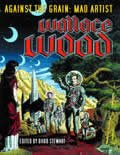Friday, January 18, 2008
The Sound of a Dry Martini
 Click for NPR Jazz Profiles: Paul Desmond, a 52-minute program hosted by vocalist Nancy Wilson. Takes 90 seconds to download, but then comes up fine in iTunes. It's worth the wait, since this January 2, 2008 radio documentary captures the essence of Paul Desmond.
Click for NPR Jazz Profiles: Paul Desmond, a 52-minute program hosted by vocalist Nancy Wilson. Takes 90 seconds to download, but then comes up fine in iTunes. It's worth the wait, since this January 2, 2008 radio documentary captures the essence of Paul Desmond.
"Koto Song" in Berlin, 1966, Brubeck, Desmond also with
"This is how the world ends... not with a whim but a banker."
--Paul Desmond
 Click for NPR Jazz Profiles: Paul Desmond, a 52-minute program hosted by vocalist Nancy Wilson. Takes 90 seconds to download, but then comes up fine in iTunes. It's worth the wait, since this January 2, 2008 radio documentary captures the essence of Paul Desmond.
Click for NPR Jazz Profiles: Paul Desmond, a 52-minute program hosted by vocalist Nancy Wilson. Takes 90 seconds to download, but then comes up fine in iTunes. It's worth the wait, since this January 2, 2008 radio documentary captures the essence of Paul Desmond.In addition to his abilities as an acclaimed alto saxophonist and composer, Desmond was also a skilled punster. Seeing a newspaper photo of Aristotle Onassis planning to purchase Buster Keaton's house, Desmond remarked, "Hm. Aristotle contemplating the home of Buster."
I was fortunate to see Brubeck and Desmond when they were at their peak, performing before a huge, totally tuned-in audience absorbed in every unpredictable permutation, with much laughter and applause when drummer Joe Morello's cymbal flew off the rod and went rolling in a straight path from stage left to stage right. It was an unforgettable evening, long ago in the 1950s, but this NPR show brings it all back for me. NPR's intro:
Known as "the swinging introvert," Paul Desmond once described his sound as "like a dry martini." With his darkly lilting approach, Desmond rose to fame while soloing in the crook of Dave Brubeck's piano, teaming with the bandleader to help form one of the most heralded groups in jazz history. Desmond also penned one of the most successful jazz classics of all time, "Take Five."

Paul Desmond was born Paul Emil Breitenfeld on Nov. 25, 1924, in San Francisco, where his father played organ and arranged music for the Golden Gate Theater. After playing both the violin and the clarinet in high school, Desmond switched to alto saxophone in 1943 — the same year the Army drafted him. He eventually changed his surname to Desmond, claiming with a straight face that Breitenfeld sounded too "Irish." Such witticisms typified his demeanor.

Paul Desmond was born Paul Emil Breitenfeld on Nov. 25, 1924, in San Francisco, where his father played organ and arranged music for the Golden Gate Theater. After playing both the violin and the clarinet in high school, Desmond switched to alto saxophone in 1943 — the same year the Army drafted him. He eventually changed his surname to Desmond, claiming with a straight face that Breitenfeld sounded too "Irish." Such witticisms typified his demeanor.
Desmond first encountered Brubeck while playing in an Army band stationed at San Francisco's Presidio army base. Brubeck's attempt to join the group as a piano player failed, but his playing had a profound impact on Desmond, who noted that Brubeck "would be in 15 different keys on an 'out-of-tune piano.'" After WWII, the two crossed paths again. While attending San Francisco State University, Desmond joined an innovative group headed by Brubeck, who was studying at Mills College in Oakland. They formed a pioneering octet and created music that placed heavy emphasis on the European classical elements in modern jazz
Go to NPR to read the rest.
"Koto Song" in Berlin, 1966, Brubeck, Desmond also with
Eugene Wright (bass) and Joe Morello (drums).

